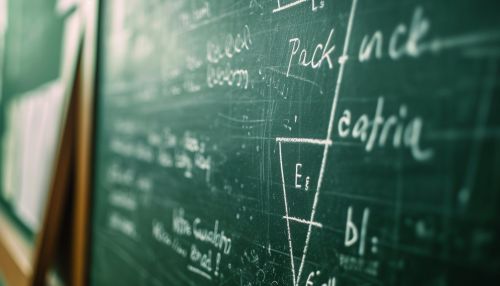Iteration (mathematics)
Definition and Overview
In the field of mathematics, iteration refers to the process of repeating a certain procedure over and over again, each time applying it to the result of the previous step. It is a fundamental concept that underlies many mathematical disciplines and real-world applications, from number theory to computer science.


Mathematical Background
The concept of iteration is closely related to the idea of a function. A function is a rule that assigns to each input exactly one output. When we iterate a function, we apply this rule repeatedly, using the output from one step as the input for the next.
For instance, consider the function f(x) = x + 2. Starting with an initial value of x = 0, the first iteration gives us f(0) = 2. The second iteration then gives us f(2) = 4, and so on. This process can be continued indefinitely, generating an infinite sequence of numbers.
Types of Iteration
There are two main types of iteration in mathematics: finite and infinite.
Finite Iteration
Finite iteration refers to the process of repeating a function a certain, finite number of times. This is often used in algebra and calculus, where it can help to solve equations or optimize functions.
For example, in the method of Newton's iteration, a function is repeatedly applied to an initial guess in order to find the roots of a differentiable function. Each iteration refines the guess, bringing it closer to the true root.
Infinite Iteration
Infinite iteration, on the other hand, involves repeating a function an infinite number of times. This leads to the concept of a limit, which is a fundamental idea in calculus and real analysis.
Infinite iteration is often represented using the notation f^n(x), where n is the number of iterations. As n approaches infinity, this expression represents the limit of the iterative process.
Applications of Iteration
Iteration is a powerful tool in mathematics and its applications are wide-ranging.
Computer Science
In computer programming, iteration is used in loops, which are fundamental constructs that allow a block of code to be executed repeatedly. This is often used to perform operations on arrays or lists, or to implement algorithms such as sorting and searching.
Numerical Analysis
In numerical analysis, iteration is used to approximate solutions to equations that cannot be solved exactly. Methods such as the Newton-Raphson method or the Gauss-Seidel method use iteration to incrementally improve an initial guess until a sufficiently accurate solution is found.
Fractals
In the study of fractals, iteration is used to generate complex, self-similar shapes. The most famous example is probably the Mandelbrot set, which is defined by a simple iterative formula.
